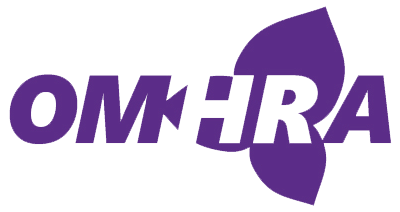
An ethics reporting program can be a key resource to support a more inclusive and safer workplace. It is a confidential channel for employees to voice concerns without fear of reprisal. An employee can expose any kind of information or activity that is considered not appropriate within an organization. This can include violation of company policy/code of conduct, unethical behaviour, workplace harassment, breach of law or regulations, safety concerns, threat to public interest, fraud including time theft, or corruption.
When developing an ethics reporting procedure there are several factors to consider while creating a strong, effective program.
Like most initiatives, the program is most effective when supported by the organization’s leadership. When your company has cohesive code of conduct and ethics policies, staunchly adhered to by management, individuals will be more willing and more likely to report suspicious activities.
Along with this, it is vital to acknowledge the fact that the modern workplace is incredibly diverse, containing a rich mix of backgrounds, cultures, languages, and life experiences. A successful ethics reporting program must cater to this diversity with as many languages as appropriate, and allow for multiple and easy channels for reporting, such as hotlines, online forms, or an appointed coworker.
Most importantly, for the program to be effective, employees must understand how the program works, why it is important, and how they will be supported if they come forward with information. This includes providing solid examples of what behaviour is expected of employees and what exactly warrants reporting. The full spectrum of actions that warrant reporting (AKA whistleblowing) is broad and goes beyond financial misconduct such as fraud/misappropriation. Employees need to know your organization’s stance on issues such harassment, sexual harassment, theft including time theft, substance abuse, workplace violence and bullying, as well as how this conduct harms the company and employees, and the importance of reporting any suspected improprieties.
Support for the reporting person is arguably the most important aspect of an ethics reporting program. If employees know they are supported, this can greatly increase the number of individuals willing to report wrongdoings. Employers also must realize that the reporting person may face numerous risks—both real and perceived—including feeling ostracized, losing friends, or even fear of damaging their career. Having said that, anonymity is the foundation of employee empowerment and support.
Employees should be fully advised on all reporting mechanisms available to file their concerns. Possible communication methods may include telephone hotlines, in-person reporting, online forms, and dedicated email addresses or fax numbers, and should be accessible 24-hours a day, 365 days a year. Management can decide to employ an internal or external hotline, using either in-house or third-party providers. This may include the costs of training, operations, and technology. An external independent third-party provider is always preferable simply because the employee may be reporting to the very person the internal program reports into. Further, the real or perceived perception that management may ‘look after their own’ is alleviated with an independent third party.
Equally important, all reports made should be recorded and retained, with file security that is tightly restricted and stringent. Even individuals who identify themselves often value the potential for anonymity and security. An openly communicated and fully enforced anti-retaliation policy also provides a sense of security to employees who fear the repercussions of reporting. Anti-retaliation clauses explicitly state that there will be no reprisal for individuals who use the ethics reporting program, and they clearly define what this looks like.
Lastly, always consult with legal counsel before finalizing any ethics reporting policy or program. This peace of mind for both you and your employees make for a strong sense of security and support. Employee tips are the most common method of detecting occupational fraud (over 60 percent of frauds are uncovered this way). A well-designed program protects both you and your employees.
By:
Nicole Weir, Manager, Client Services
Xpera HR Services Inc.
nicole.weir@xpera.ca
Presented by

Archives
Categories
- Attraction and Recruitment
- Benefits
- Celebrating Success and Recognition
- Change Management
- Conflict Resolution and Coaching
- Culture
- Diversity, Equity and Inclusion
- Emotional Intelligence
- Employee Engagement
- Employee Performance
- Labour Disruption
- Mentoring
- OMHRA activities
- OMHRA Events
- Psychological health and safety of the HR professional
- Recruitment
- Recruitment and Retention
- Retention
- Uncategorized
- Unique ideas for recruiting in a tight job market
- Wellness
Recent Posts
- How Leadership Development Coaching Provides Better Outcomes
- Better Leadership: Focus on a Coach Approach
- Creating a Psychologically Safe Workplace
- Group Health Insurance – The Impact of Preferred Pharmacy Networks on Employees’ Mental Health
- Provide Real Support For Your Mid-Career Team’s Psychological Resilience
